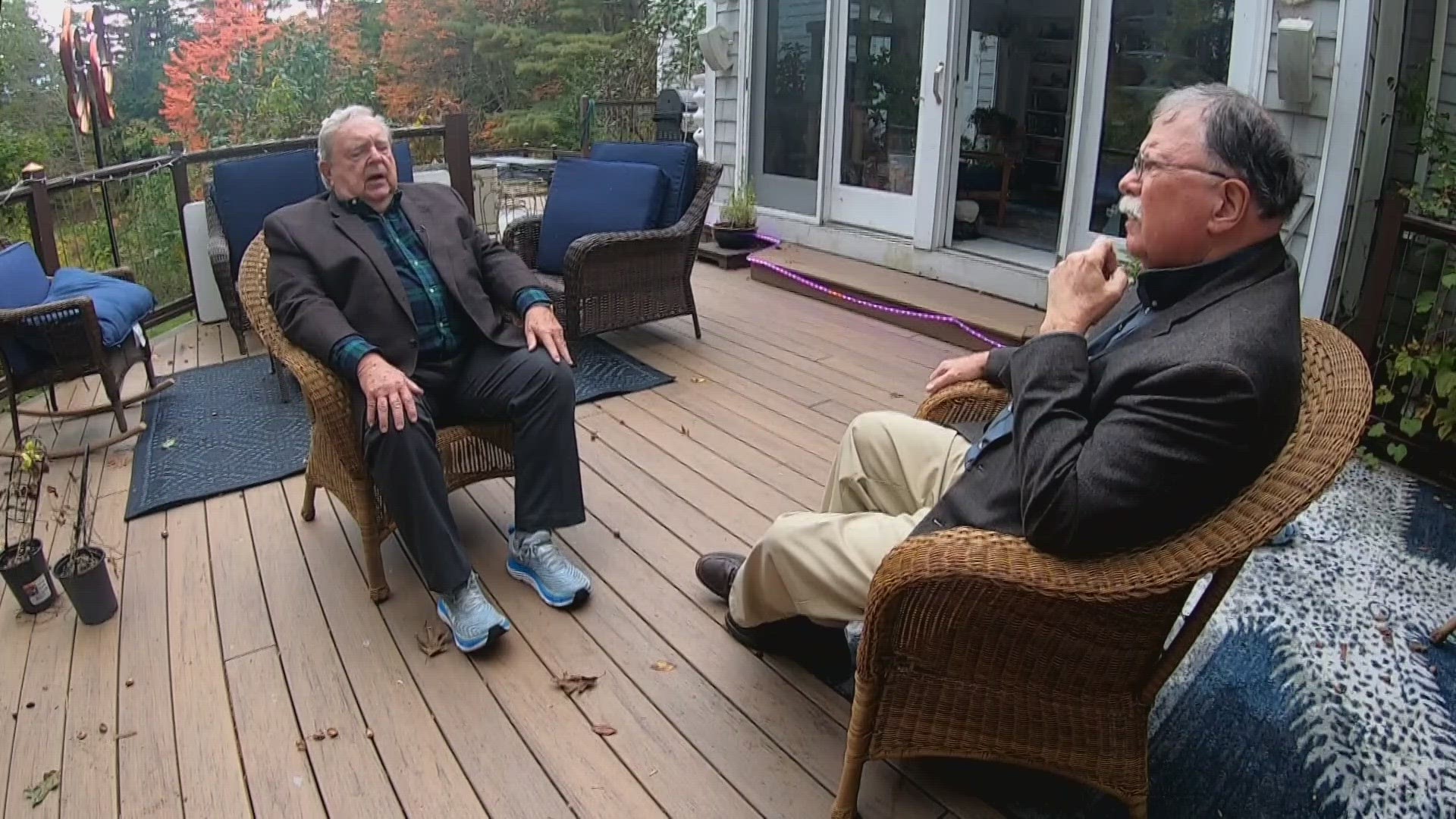AUGUSTA, Maine — Mainers on Tuesday soundly rejected the so-called "Pine Tree Power" referendum, which would have forced a consumer takeover of the state’s two major electric utilities.
It’s the same result as the last time Maine had a public power proposal—50 years ago.
“Sixty-two to thirty-eight percent. Not close ,” laughed Tony Buxton, now a prominent energy lawyer who 50 years ago was campaign manager for the public power referendum.
That proposal in 1973 also was the result of a citizen petition drive, led by state Sen. Peter Kelley of Caribou. Kelley says the issues then were much the same as they are in 2023.
“Expensive electric rates as compared to public power states,” recalled Kelley.
“Places like the Tennessee Valley Authority (TVA), Washington State, and Houlton Maine. So the impetus was cheaper electricity."
Kelley and Buxton said that public power proposal would have created a seven-member board, appointed by the Governor, to lead a Power Authority of Maine. That agency would have had the responsibility for generating or buying all the electricity used in the state, then delivering it to the grid. The private utilities would have continued to deliver the power to homes and businesses.
In contrast, the Pine Tree Power plan just defeated by Maine voters would have had a board elected by voters, and would have forced the sale of Central Maine Power and Versant Power to the new, consumer owned utility.
Peter Kelley insists the Power Authority of Maine would have provided cheaper electricity.
"Because it cut out a lot of big costs, no stockholder fees, no taxes, [lower] bond prices, couldn’t beat it," he remembered.
Buxton said there was significant initial support.
"People stood in line at churches all over Maine on Saturdays and Sundays, waiting in the cold to sign petitions."
But there was a fierce fall campaign, and the privately owned utilities fought back.
"I thought I was a good capitalist, a good boy from Caribou, Maine," said Kelley. "And they made me out to be a communist. Of course it wasn’t true.”
Buxton recalled that the campaign also revealed problems with the proposed law.
"It turns out the legislation was horrendous. Someone had just taken the New York power authority and crossed out New York and put Maine. And the New York power authority is free from regulation by the state of New York, virtually all, and that’s probably not a good idea," Buxton said.
The public power supporters were also seriously underfunded, similar to this year’s campaign, said Kelley. A newspaper story at the time stated that the utilities outspent supporters by a four to one margin.
Despite having the support of then Governor Ken Curtis, the Power Authority of Maine proposal went down in defeat.
The issue, however, has remained, as evidenced by this year’s proposal and vote.
Maine Public Advocate Bill Harwood, who represents consumers in utility regulatory issues, said he hopes there will be some lessons learned by the utilities, even though they won.
"I hope CMP and Versant, and I will encourage them to pay very close attention to that and try to figure out what that demographic is, what part of the state that concern is and try to tease out what are the problems and try to address them," Hardwood said.
Fifty years later, Kelley said he still believes public power would be good for Maine.
"I hope we don’t have to wait another fifty years to get another referendum," Kelley added.
However, Buxton has changed his view, saying the threat of climate change supersedes all other concerns, and that a mix of private industry and government is essential to meet that challenge.
"I think there is a role for government funding of some energy facilities, because of the climate crisis. We are going to have a hard time putting on the backs of—young, poor and wealthy—all the costs we need to incur to achieve our climate objectives. It really should be done by taxation not electric rates and I think there is a lot of agreement," Buxton said.
Harwood says he does not think another referendum is likely in the near future.
The debate is clearly not going away. Supporters of Pine Tree Power, have already said their efforts to change Maine’s electricity industry will continue.

